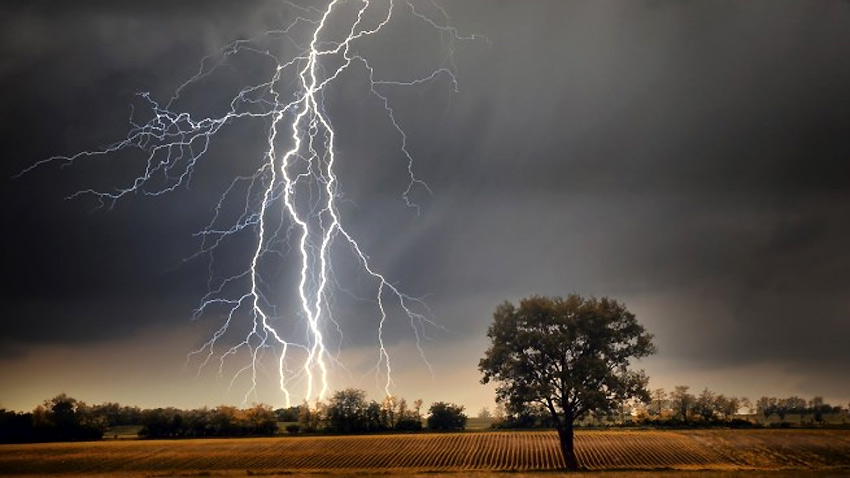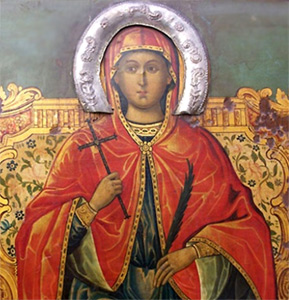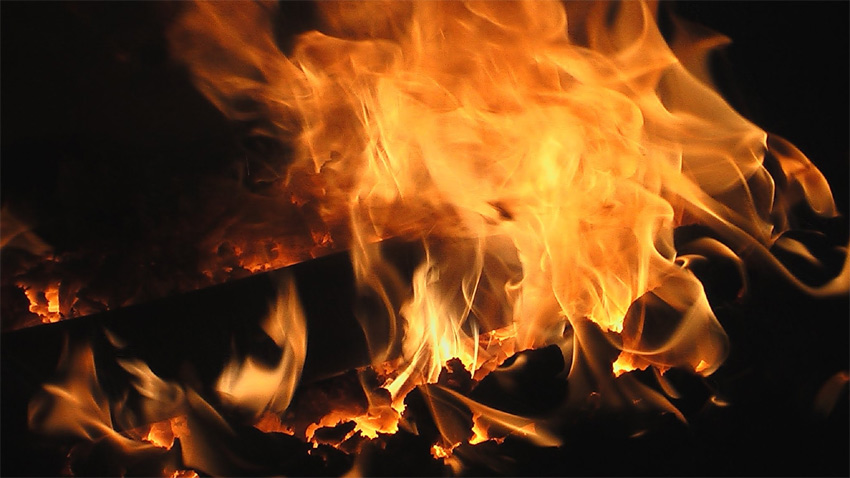The goreshtnitsi – dog days, the hottest days of summer in Bulgaria fall on 15, 16 and 17 July. Their roots go back to pagan times and are connected with the cult of fire.
 By a tradition, on the night of July 15, the first of the dog days, the fire in the home would be extinguished to safeguard the people and house against fire. On the second day, no fire was to be lit and on the third day, a special ritual was performed for lighting a “new” and “living”, “young” fire. In some parts on 15 July, women would bury rock salt in the ash of the fireplace because it was believed that it absorbed of the power of the flames and could be used to make a magic potion - when put into the water of a bachelor lad it would kindle the flame of love for a given girl.
By a tradition, on the night of July 15, the first of the dog days, the fire in the home would be extinguished to safeguard the people and house against fire. On the second day, no fire was to be lit and on the third day, a special ritual was performed for lighting a “new” and “living”, “young” fire. In some parts on 15 July, women would bury rock salt in the ash of the fireplace because it was believed that it absorbed of the power of the flames and could be used to make a magic potion - when put into the water of a bachelor lad it would kindle the flame of love for a given girl.
He who immerses himself in the charmed water on dog days would be healthy throughout the year. “There is a belief that bathing in the warm water that gushes from the Earth’s bowels shall keep disease at bay,” writes Bulgarian ethnographer Prof. Dimitar Marinov.
Over these three days people would try to divine what the weather would be like during the first three months of the year – January, February and March. If the day was warm and sunny then the respective month would be mild, snowless, warm and rainy. But if one of these three days happened to be cold, the respective month would be frosty, with blizzards. If there was thunder one hour before midday then winter would come early, if thunder rumbled one hour after midday – winter would come late. On 16 July shepherds would throw their cudgels into the pens – if the sheep lay on top of it, winter would be harsh, if they didn’t it would be mild. If they lay down on one end of the cudgel, the cold would come at the end of winter. All three dog days passed in prayers for rain but there were times when people would pray for a dry spell if the year was rainy.
 In the Rhodope and Strandja mountains, the third of the dog days is held in special regard – 17 July is the day dedicated to St. Marina, the patron saint of fire, conflagration and storms; snakes also submit to her power. In the traditional Bulgarian calendar this day is known as Fiery Marina. Marina the Healer is also mistress of hailstorms; at night she will come into the dreams of people who believe in her to give them advice on how to deal with the problems they have. On this day women must not sew or embroider, they must not even touch thread or rope - anything that may resemble a snake, otherwise they may chance upon snakes and get bitten.
In the Rhodope and Strandja mountains, the third of the dog days is held in special regard – 17 July is the day dedicated to St. Marina, the patron saint of fire, conflagration and storms; snakes also submit to her power. In the traditional Bulgarian calendar this day is known as Fiery Marina. Marina the Healer is also mistress of hailstorms; at night she will come into the dreams of people who believe in her to give them advice on how to deal with the problems they have. On this day women must not sew or embroider, they must not even touch thread or rope - anything that may resemble a snake, otherwise they may chance upon snakes and get bitten.
Bulgarians believed that St. Marina helps young girls marry, as she is the patroness of women, especially when giving birth. She sees to it that mother and child are well and cures infertility and women’s diseases, ailments of the skin and the eyes. July 17 marks the beginning of the working-bee season – an important element in the life of Bulgarian society.
It is said that on July 17 the fire falls from the sky all by itself. This is the reason why on this day two men - twins or relatives bearing the same name – would go out into the village square to rub two sticks together and spark the “new, living, divine” fire. Then they would build a big fire which all people from the village would jump over for health. The domestic animals would also be brought to it to make them prolific. It was believed that the old fire in the hearth could no longer ward off magic spells, disease or evil spirits, so after saying a prayer each one would take home of the “living” flame to light a fire with – the hearth was the symbol of family, health and prosperity. The fire was kept burning until July 15 the following year. This is the day celebrated by blacksmiths, tinsmiths, potters and all people working with fire. Early in the morning their wives would make honey coated bread and give it out to neighbours – it was believed this helped their husbands in their job.
It was believed that the old fire in the hearth could no longer ward off magic spells, disease or evil spirits, so after saying a prayer each one would take home of the “living” flame to light a fire with – the hearth was the symbol of family, health and prosperity. The fire was kept burning until July 15 the following year. This is the day celebrated by blacksmiths, tinsmiths, potters and all people working with fire. Early in the morning their wives would make honey coated bread and give it out to neighbours – it was believed this helped their husbands in their job.
St. Marina day rituals include a sacrificial offering, a shared meal near churches, chapels or curative water springs named after her. The goreshtnitsi are the days when Bulgarians would perform all kinds of rituals to ward off fire.
English version: Milena DaynovaHalva, this sweet temptation with an oriental twist, is a welcome delicacy on the Bulgarian table, especially on holidays. Judging by the descriptions of Western travellers, halva was a common dessert in Bulgarian lands as early as the 16th century. The..
The Youth Centre "Zahari Stoyanov" in the town of Dobrich, Northeastern Bulgaria, is organizing a folklore meeting of communities on the occasion of the International Day of Tolerance. The aim of the event, which will take place from today to 17..
The Bulgarian folklore dance group Vito Horo from Perth will take part in the multicultural women’s festival Harmony of Colours, taking place tonight in the Australian city, the Bulgarian association Rodina has announced. Besides the Bulgarian..

+359 2 9336 661
